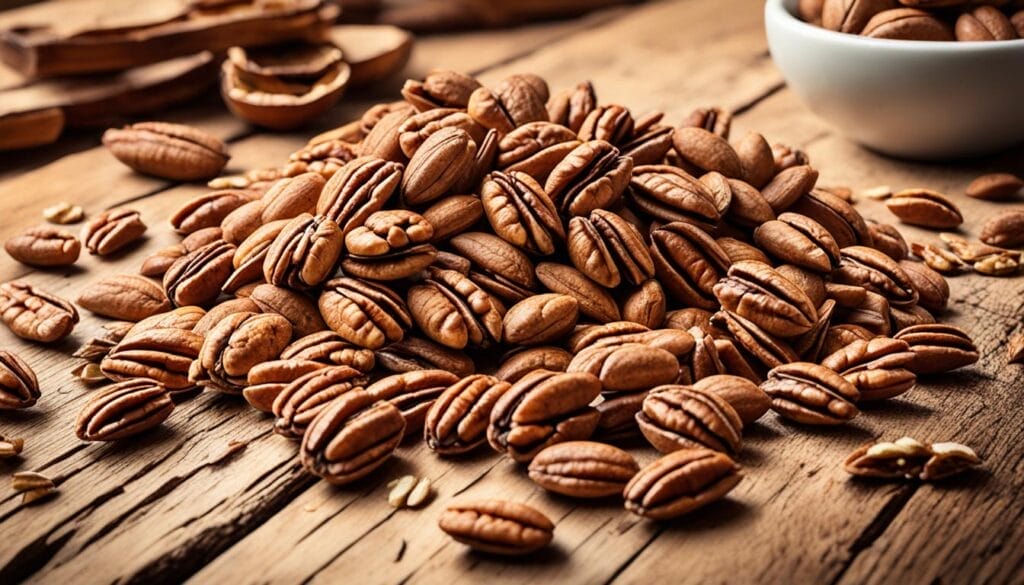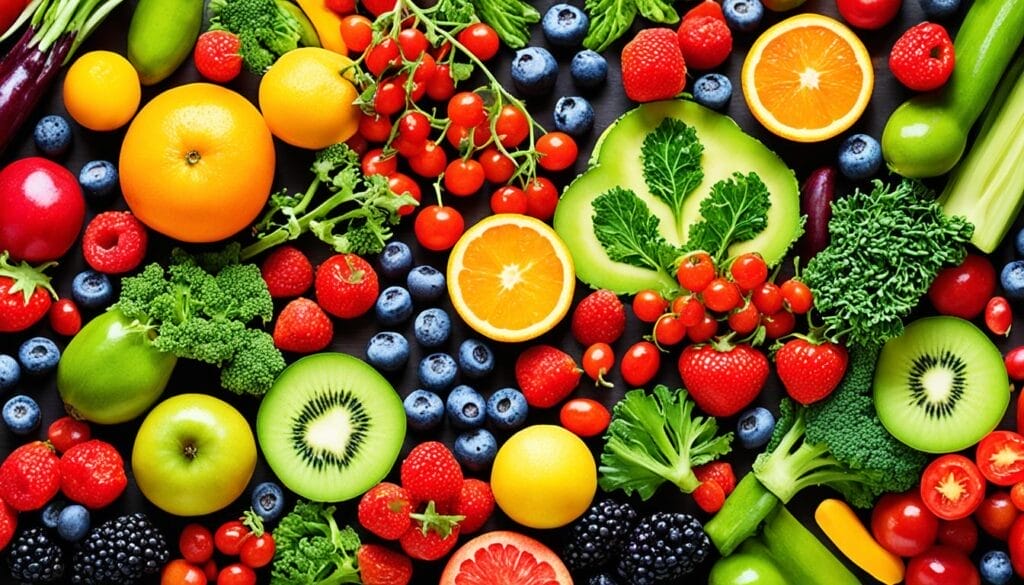Hi, I’m Helena, and I’ve always believed in the power of healthy eating and natural remedies. Recently, I discovered the incredible benefits of antioxidant-rich foods, and they have become an essential part of my daily diet. Let me share with you a story that shows just how powerful these superfoods can be in supporting our health.
A few years ago, my friend Sarah was feeling constantly tired and run-down. She had been juggling a demanding job and family responsibilities, and her immune system was starting to suffer. Sarah had heard about the importance of antioxidants in maintaining overall health, so she decided to give it a try.
She started incorporating more antioxidant-rich foods into her meals, including berries, dark leafy greens, and nuts. Within a few weeks, Sarah noticed a remarkable change. Not only did her energy levels increase, but she also found herself falling sick less often. Her skin even started to glow!
Curious about the science behind these amazing results, we did some research and learned that antioxidants help combat free radicals in our bodies. These free radicals can cause oxidative stress, leading to inflammation and an increased risk of chronic diseases. By consuming foods rich in antioxidants, like vitamin C and polyphenols, we can protect our cells and support our overall well-being.
Key Takeaways:
- Antioxidant-rich foods are a powerful way to support your health and well-being.
- Consuming foods rich in antioxidants helps combat free radicals and reduce the risk of chronic diseases.
- Incorporate antioxidant-rich foods, such as berries, dark leafy greens, and nuts, into your diet for optimal health benefits.
- A healthy lifestyle, including regular exercise and stress management, complements the benefits of antioxidant-rich foods.
- Always consult with a healthcare professional before making any significant changes to your diet or lifestyle.
Dark Chocolate
Dark chocolate, with its high cocoa content, is a nutritious and antioxidant-rich food. It contains minerals and antioxidants that have been linked to impressive health benefits, such as decreased inflammation and reduced risk factors for heart disease. The antioxidants in cocoa and dark chocolate help neutralise harmful free radicals and protect against oxidative stress.
According to research, dark chocolate has been shown to have several positive effects on heart health. One study found that consuming dark chocolate improved blood flow and decreased blood pressure, which are important factors in maintaining cardiovascular health. Another review of multiple studies suggested that dark chocolate consumption can reduce the risk of heart disease by improving cholesterol levels, reducing inflammation, and decreasing the risk of blood clots.
One of the key components in dark chocolate that contributes to its health benefits is cocoa. Cocoa is rich in flavanols, a type of antioxidant that has been associated with various health advantages. Flavanols have been found to have anti-inflammatory properties, which can help reduce the risk of chronic diseases, including heart disease.
Additionally, dark chocolate is known to stimulate the production of nitric oxide in the body. Nitric oxide helps relax the arteries, improving blood flow and reducing the risk of blood clots. This effect can contribute to the prevention of heart disease and other cardiovascular conditions.
Although dark chocolate offers numerous health benefits, it is important to consume it in moderation. Dark chocolate can be high in calories and sugar, so portion control is essential. Choosing dark chocolate with a high percentage of cocoa (70% or higher) and a lower sugar content is recommended.
Incorporating dark chocolate into a balanced and varied diet can be a delicious way to reap its health benefits. So go ahead, savor that square of dark chocolate guilt-free!
Pecans
When it comes to antioxidant-rich foods, pecans are a true gem. These delicious nuts are not only packed with flavour but also brimming with health benefits. Pecans are a fantastic source of healthy fats and minerals that contribute to overall well-being. But what sets them apart is their high antioxidant content, which can have a positive impact on your heart health and cholesterol levels.
The antioxidants found in pecans can help raise your blood antioxidant levels, providing protection against harmful free radicals that can lead to oxidative stress. By combating oxidative stress, pecans contribute to reducing the risk of chronic conditions, including heart disease. In fact, research suggests that incorporating pecans into your diet may help lower cholesterol levels, which is a significant risk factor for heart disease.
It’s important to highlight that while pecans offer numerous health benefits, they are also high in calories. Therefore, portion control is essential, especially if you’re aiming to manage your weight. Enjoying a handful of pecans as a snack, sprinkling them over salads, or incorporating them into your favourite recipes can be a delightful and nutritious way to reap the rewards of these antioxidant-packed nuts.
So, the next time you’re looking for a tasty and nutrient-dense snack, reach for a handful of pecans. Your taste buds and heart will thank you!

If you want to learn more about the benefits of antioxidant-rich foods, keep reading as this article explores other antioxidant powerhouses like blueberries, strawberries, and more.
Blueberries
Blueberries are a delicious and nutritious fruit that can provide numerous health benefits. Despite their small size, these little berries are packed with essential nutrients and powerful antioxidants.
One of the key reasons blueberries are considered a superfood is their high antioxidant content. Antioxidants are vital for protecting our cells from damage caused by harmful molecules called free radicals. Blueberries contain a specific type of antioxidant called anthocyanins, which give them their vibrant blue colour.
The antioxidants in blueberries have been shown to have a positive impact on brain function. Studies suggest that the high concentration of antioxidants, particularly anthocyanins, can potentially slow down age-related decline in brain function and improve memory and cognitive performance.
Not only do blueberries benefit brain function, but they also play a role in heart health. Antioxidants help reduce inflammation, which can contribute to the development of heart disease. Blueberries have specifically been linked to lowering the risk factors associated with heart disease, such as high blood pressure and LDL (bad) cholesterol levels.
The Benefits of Blueberries:
- Improves brain function and memory
- Reduces the risk of heart disease
- Helps lower blood pressure
- Aids in managing cholesterol levels
- Offers anti-inflammatory properties
- Supports a healthy immune system
To incorporate blueberries into your diet, you can enjoy them fresh, frozen, or added to smoothies, yogurt, or oatmeal. They make a delicious and nutritious addition to various dishes.
So, the next time you’re craving a sweet and tangy snack, reach for a handful of blueberries. Your brain and heart will thank you!
Strawberries
Strawberries are a delicious and versatile fruit that can provide numerous health benefits. Not only are they packed with flavor, but they are also rich in antioxidants, making them a great addition to any diet.

One of the key antioxidants found in strawberries is anthocyanin. This powerful antioxidant has been shown to have a positive impact on heart health. It can help lower levels of LDL (bad) cholesterol, which is a major risk factor for heart disease, while also raising levels of HDL (good) cholesterol.
Incorporating strawberries into your diet can have a significant impact on reducing the risk of heart disease. They can help maintain a healthy cholesterol balance, keeping your cardiovascular system in check.
Benefits of Strawberries
Strawberries offer a range of health benefits beyond their antioxidant properties. Here are some of the key benefits:
- Rich in vitamin C: Strawberries are an excellent source of vitamin C, which can boost your immune system and support overall health.
- High in fibre: With a high fibre content, strawberries can aid in digestion and promote a healthy gut.
- Low in calories: Strawberries are a great choice for those watching their calorie intake while still satisfying their sweet tooth.
- Loaded with nutrients: In addition to antioxidants and vitamin C, strawberries also contain other essential vitamins and minerals, such as folate and potassium.
Include strawberries in your diet by adding them to smoothies, salads, yogurts, or simply enjoying them on their own as a delicious snack. Their vibrant red colour and sweet taste make them a treat for both your taste buds and your health.
So to summarise, strawberries are a nutritious fruit that can provide numerous health benefits. Their antioxidant-rich nature, specifically the anthocyanin content, can help lower LDL cholesterol levels and reduce the risk of heart disease. So, go ahead and enjoy this vibrant and tasty fruit for a well-rounded and healthy diet.
| Benefits of Strawberries | How Strawberries Help |
|---|---|
| Rich in vitamin C | Boosts the immune system and supports overall health |
| High in fiber | Aids in digestion and promotes a healthy gut |
| Low in calories | Great for those watching their calorie intake while satisfying their sweet tooth |
| Loaded with nutrients | Contains essential vitamins and minerals such as folate and potassium |
Artichokes
Artichokes are a delicious and nutritious addition to any diet. Not only are they packed with flavour, but they are also rich in antioxidants that can help protect against cancer and heart disease.
One of the key antioxidants found in artichokes is chlorogenic acid. This powerful compound has been shown to have anti-inflammatory and antiviral properties, and it may even help prevent certain types of cancer.
Research has also suggested that artichokes may have a positive impact on heart health. Studies have shown that the antioxidants in artichokes can help reduce levels of LDL cholesterol, which is often referred to as “bad” cholesterol. By lowering LDL cholesterol, artichokes may help to decrease the risk of heart disease.
“Artichokes are a great source of dietary fiber, minerals, and antioxidants.”
“I always make sure to include artichokes in my meals. They are not only delicious but also provide valuable health benefits. I love how they add a unique and satisfying taste to my dishes while also protecting my body from harmful free radicals. Plus, with their high fibre content, artichokes help keep my digestion in check.”
When it comes to preparing artichokes, it’s important to note that the antioxidant content can vary depending on how they are cooked. Steaming or boiling artichokes is the best way to preserve their antioxidant properties. However, if you prefer to grill or bake them, they will still offer plenty of health benefits.
“The antioxidant content of artichokes can vary depending on how they are prepared.”
| Nutrient | Amount per 100g |
|---|---|
| Calories | 47 |
| Protein | 3.3g |
| Total Fat | 0.2g |
| Dietary Fiber | 5.4g |
| Vitamin C | 7.4mg |
| Vitamin K | 14.8µg |
| Potassium | 370mg |
As you can see from the table above, artichokes are low in calories and fat but high in fibre and important nutrients like vitamin C and potassium.
Whether you enjoy artichokes as a side dish, appetiser, or incorporated into a recipe, you can be sure that you’re adding a nutritious and antioxidant-rich food to your diet.

Goji Berries
Goji berries, often hailed as a superfood, are packed with an array of essential vitamins, minerals, and powerful antioxidants. These little red berries, scientifically known as Lycium barbarum polysaccharides, have gained popularity for their potential health benefits.
Goji berries are rich in vitamin C, which plays a vital role in supporting the immune system and promoting healthy skin. Additionally, they contain important minerals like iron, zinc, and selenium, which are crucial for various bodily functions.
One of the key reasons goji berries are considered a superfood is their impressive antioxidant content. Antioxidants help protect our cells from damage caused by harmful free radicals, which can contribute to the development of chronic diseases.
Research suggests that the unique antioxidants found in goji berries may have a positive impact on heart health. They have been linked to a reduced risk of heart disease by helping to lower blood pressure and cholesterol levels.
“Goji berries are rich in vitamins, minerals, and antioxidants that can support overall well-being and reduce the risk of chronic diseases.”
However, it’s important to note that goji berries can be quite expensive and may not be easily accessible to everyone. Additionally, while there have been promising studies on the health benefits of goji berries, more research is needed, particularly human-based studies, to fully understand their potential effects.
Nevertheless, incorporating goji berries into a balanced diet can be a delicious way to boost your intake of essential nutrients and antioxidants.
Goji Berries Nutritional Profile
| Nutrient | Amount per 100g |
|---|---|
| Calories | 280 |
| Protein | 10g |
| Fat | 2g |
| Carbohydrates | 64g |
| Fiber | 16g |
| Vitamin C | 1,544mg |
| Vitamin A | 15,400 IU |
| Potassium | 1,130mg |
| Iron | 10mg |
| Zinc | 2mg |
Summing It Up
Eating a diet rich in antioxidant-rich foods can have numerous health benefits and reduce the risk of chronic diseases. Incorporating the top 14 antioxidant-rich foods into your daily meals can boost your blood levels of antioxidants, reduce oxidative stress, and support overall well-being.
Include dark chocolate, pecans, blueberries, strawberries, artichokes, goji berries, raspberries, kale, red cabbage, beans, beets, spinach, and a variety of spices and herbs in your diet to maximise your antioxidant intake. These foods are packed with antioxidants that help protect your cells from free radicals and decrease disease risk.
By consuming a diverse range of fruits, vegetables, nuts, and plant-based foods, you can reap the health benefits of antioxidants. Enjoy a delicious assortment of natural remedies and give your immune system a boost by incorporating these antioxidant-rich foods into your daily eating habits. Take charge of your health and reduce the risk of diseases by making these simple and nutritious food choices.
FAQ
What are antioxidant-rich foods?
Antioxidant-rich foods are those that contain compounds that help defend cells from free radicals, which can cause oxidative stress and increase the risk of chronic diseases.
Why is it important to eat a diet rich in antioxidants?
Eating a diet rich in antioxidants can reduce oxidative stress and lower the risk of chronic diseases.
Which are the top antioxidant-rich foods?
The top antioxidant-rich foods include dark chocolate, pecans, blueberries, strawberries, artichokes, goji berries, raspberries, kale, red cabbage, beans, beets, spinach, and spices and herbs.
Why is dark chocolate considered an antioxidant-rich food?
Dark chocolate contains minerals and antioxidants that have been linked to impressive health benefits, such as decreasing inflammation and reducing risk factors for heart disease.
How do pecans contribute to antioxidant intake?
Pecans are a good source of healthy fats and minerals and contain a high amount of antioxidants that can raise blood antioxidant levels and help reduce cholesterol, which is a risk factor for heart disease.
What are the health benefits of blueberries?
Blueberries are low in calories but packed with nutrients and antioxidants. The antioxidants in blueberries, especially anthocyanins, have been shown to delay ageing-related decline in brain function, reduce inflammation, and lower the risk factors for heart disease.
How do strawberries contribute to heart health?
Strawberries are rich in vitamin C and contain an antioxidant called anthocyanin, which can help reduce the risk of heart disease by lowering levels of LDL (bad) cholesterol and raising levels of HDL (good) cholesterol.
What are the benefits of including artichokes in your diet?
Artichokes are a great source of dietary fibre, minerals, and antioxidants. They contain an antioxidant called chlorogenic acid, which has been linked to a reduced risk of certain cancers, type 2 diabetes, and heart disease.
Why are goji berries considered a superfood?
Goji berries are marketed as a superfood because they are rich in vitamins, minerals, and unique antioxidants called Lycium barbarum polysaccharides. These antioxidants have been linked to a reduced risk of heart disease and cancer.
How can a diet rich in antioxidant-rich foods benefit overall health?
A diet rich in antioxidant-rich foods can boost blood levels of antioxidants, reduce oxidative stress, and lower the risk of chronic diseases.
Source Links
Share Me:
READY TO UNLEASH
YOUR BEST SELF?
Click “Sign Me Up!” And Start Your Fitness Transformation!





